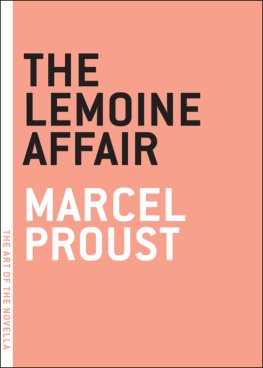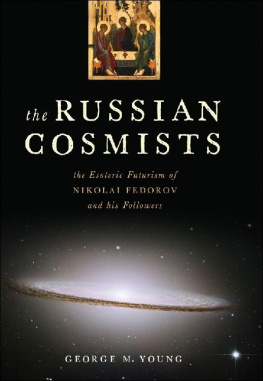To be is to be perceived.
Bishop Berkeley
There are many people I want to thank for the support they gave me as I wrote this book. First among them is Francisco Goldman, who has been an invaluable promoter of my work. Many thanks, as well, to Beatrice Monti della Corte, who offered me a home at the Santa Maddalena Foundation where I wrote the first chapters of Rex. Alma Guillermoprieto read the book in manuscript and had many insightful observations. The Guggenheim Foundation gave generous support. Finally, I finished writing Rex as a Fellow of the Cullman Center for Scholars and Writers at the New York Public Library and am very grateful to everyone there. Special thanks, as well, to Esther Allen, for her excellent translation, which is in fact a rewriting of this book in English. Thanks, as well, to Amy Hundley and to the rest of the Grove/Atlantic family, especially Morgan Entrekin.
Finally, I want to express all my gratitude to my family, my daughter, Alicia, and my wife, Elena Bezborodova, for their many years of support and understanding.
1
Ive been reading it for years, the one Book. Over and over without stopping. Beginning again whenever I reach the final description of the vast party, the inaugural ball, returning immediately to the first words, when hes dozing off in the house in Combray and dreams of stopping time in its tracks, solidifying it. Ive opened it at random in ship terminals (Helsinki), English pubs, Istanbul cafs. Each and every time, without fail, Ive been stunned by the intelligence, the penetration, the unique capacity to perceive things that escape every other writer. Always the right words, flowing out miraculously, as if he never had to stop and think about them, as easily and naturally as someone randomly humming syllables, nonsense noises, tra-la-la-ing a tune.
Language, an aqueous thing, foundationless, a river of words. Yet how rapidly I sail along it, the mass of that river flowing beneath me: no mere suspension of sediment washed along by chance but the immense briny depths of a living liquid. And we can peer down and scrutinize its surface, see it at work, discover its life, watch its cells move and exchange information and energy without ever ceasing to transmit an idea. A profligacy of means, an expenditure far beyond most other writers. Not simply piecing together a more or less coherent story making the sun come up, in the novel, over that red sea but reducing the incredible life of that prose or song that lies beneath our own to its essence, as if the Writer had used blood where others only water, simple sea water. And the same astonishment when, turning your gaze from the adulterous woman, the fraudulent scientists, the aristocrats of dubious lineage, you discover that all of it moves and glides upon the very finest material, the bodily fluid, the lymph of an immense animal, the earth itself a gigantic living being that easily, shockingly, secretes blood. In a single, sudden, galactic rhythm.
To such a degree that when the manuscript reached the publishing houses pages of this new substance placed beneath the microscope for the first time its editor, M. Van Leeuwenhoek, could see nothing but platelets, red blood cells, and pushed it away in disgust, deeming it no more than a polluted liquid, devoid of human beings, storyline, any resemblance to the patterns of life. He quested across that vast sea which in itself was an unprecedented extravagance, a technique from somewhere beyond the skies in search of the skiffs and galleons of its characters and found very few of them, and those few as if becalmed. And he thought, Can this be a story? Is it a book, even? And it was the final book!
2
It startled, even frightened him when I spoke that way about the Book, this being without fixed ageat first Id thought that was me, that the Writer might be referring to me, but on an instants further reflection I realized the phrase applied rather to the man who had greeted me, Batyk. A man bearing a perfect resemblance to a peon, someone fetched from the depths of the darkest, sootiest oil painting.
I am concerned, he announced, with the infinite cunning and unction of Norpois (in the Writer); I am concerned, I fear that your manner of teaching, an education such as the one you propose, based on a single book, may not be the correct or appropriate one. So distorted an education, its vortex resting upon a single book, cannot, by all rights, amount to much. Didnt you list the classes you were to give him on my behalf? Spanish, mathematics, geography in Spanish? Hadnt you also mentioned physics? Didnt you assure me you were well grounded in physics, extremely (sarcastic here) well grounded in physics, didnt you agree to cover the entire sixth-grade curriculum and the seventh, as well?
And yet all I did in the first class was talk about the Book, and in the second I talked only about the Book, and in the third read aloud selected passages from the Book. That drew him closer.
To deny, like the Commentator, the greatness, the usefulness of the Book. To begin, like the Commentator, from his own terrible incapacity the Commentators to speak in a frank and direct way about something that truly interests him. Abandoned, instead, to his zeal for denying all good books, ignoring the many that have been written, his particular vice of paying attention only and almost exclusively to minor authors, names in an index. The unwarranted fixation with which he studied them, reducing them to their elements, vivisecting them. Not vivisecting but morisecting them, for they lay there lifeless before my eyes. The satisfaction of a gambler who watches a machine, a miracle of engineering, busily revolving. The little wheels of his citations spinning in their niches, toothlet locking into toothlet, but a machine you know? devoid of human warmth. Perfect but a machine.
Who hasnt felt that to be so? I invite any reader to write and try to refute me with the story of how he or she closed one of those commentaries in a state of agitation, moved by one of the dry commentaries that the Commentator sought to pass off as literature. Any reader on earth, ever.
And such a man, such a horror, in your house. His surprise when I spoke to him of the Book and he asked me for it, wanting to take a look. He held it up before me, rocking on his heels, moved it away from his eyes, as if farsighted, pretended to read it. He wondered, in a very loud voice replete with falsity, And why doesnt it mean anything to me? Why doesnt this book speak to me and tell me what you say it says? (The character who appears on stage in the second act wearing Moorish slippers; the instant we see him, his socks drooping, the djellaba thrown over his shoulders, we know hell behave badly, perfidiously.)
As indeed he did, opening wide his arms, as wide as arms are opened in Syria or Istanbul (not in Angarsk, in Buryatia, where he came from), and pretending that the Book had slipped from his grasp. His whole malevolent being in that gesture. Falsely conciliatory at first, but then he threw the Book down on the corner of the table. From which, under the momentum of its own weight, it slipped and fell on its spine.
3
I didnt move or change expression, Petya. True, I did inch away from the wall, white with rage, but I regained my calm before making any further move. Then I walked to the middle of the room, forcing my feet to the place where the Book had fallen, and picked it up from the floor. I regretted having given it to him, having made such a miscalculation; how right the Writer is when he says:












